This article has been just updated: January 18, 2024
There’s no denying that Airbnb has changed the way we travel and explore the world, but how are travelers and hosts changing Airbnb? In this article, we explore the top 5 Airbnb trends taking place in 2024 to see where this giant of the sharing economy is headed.
Airbnb Statistics 2024
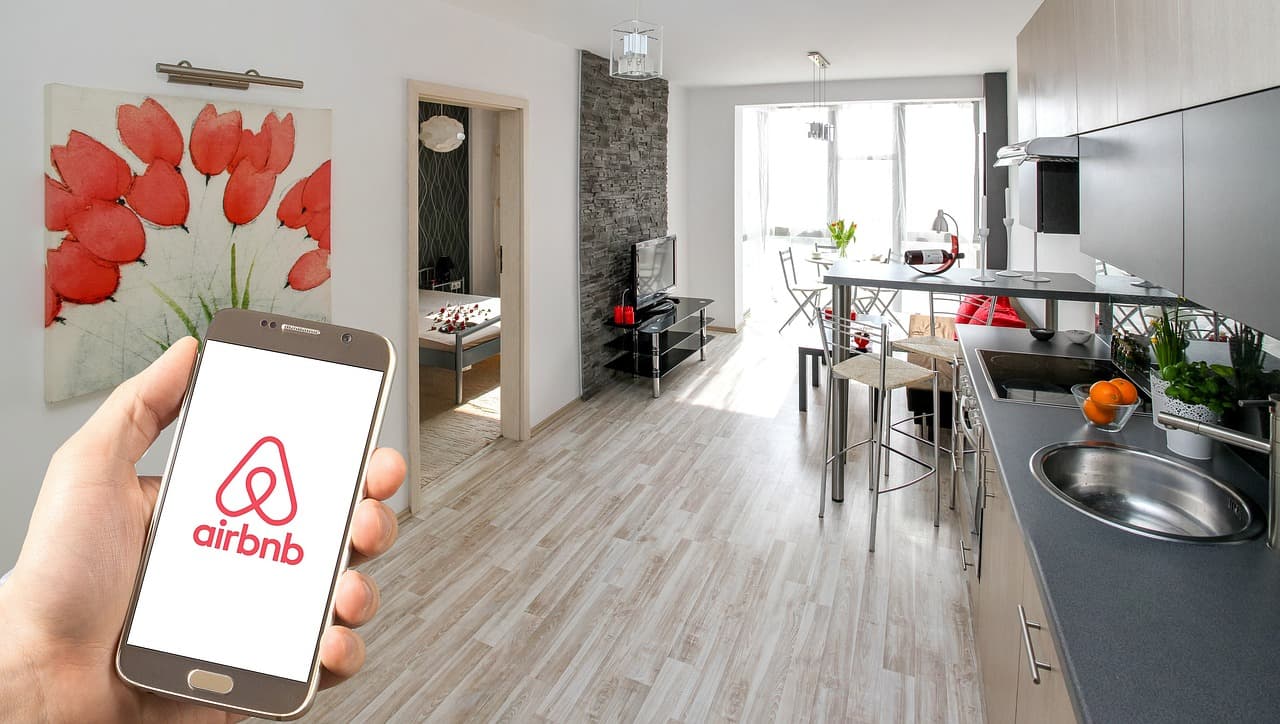
The popular online marketplace for arranging or offering lodging now has nearly 2 million instantly bookable listings, giving its 150 million users worldwide a virtually endless number of options to experience destinations far and near.
In 2024, Europe is the clear leader when it comes to vacation rental properties, accounting for 60 percent of all listings. The United States accounts for 20 percent, and other countries together take the remaining 20 percent.
With around 77,000 listings for room and apartment rentals, London outnumbers all other European cities, but Paris, Rome, and Copenhagen are not far behind.
To date, Airbnb hosts have earned $65 billion. Airbnb itself raised $3.4 billion, and its total valuation is $35 billion. Analysts expect the value of Airbnb to keep increasing at a steady pace as more and more adults start to participate in the sharing economy.
Airbnb has enormous potential for growth in India, where less than 1 percent of all listings are located. According to Nathan Blecharczyk, co-founder and chief strategy officer of Airbnb, India is set up for success, and the company sees it as a long-term commitment, ranking among the top 5 countries with the biggest potential, alongside China.
Airbnb Trends You Need to Know About
Whether you’re an avid Airbnb user who enjoys finding attractive listings or a host who wants to create unforgettable experiences, you can benefit from following the latest Airbnb trends and keeping with up the industry. Listed below are the top 5 Airbnb trends in 2024 and beyond.
1. Going Tiny
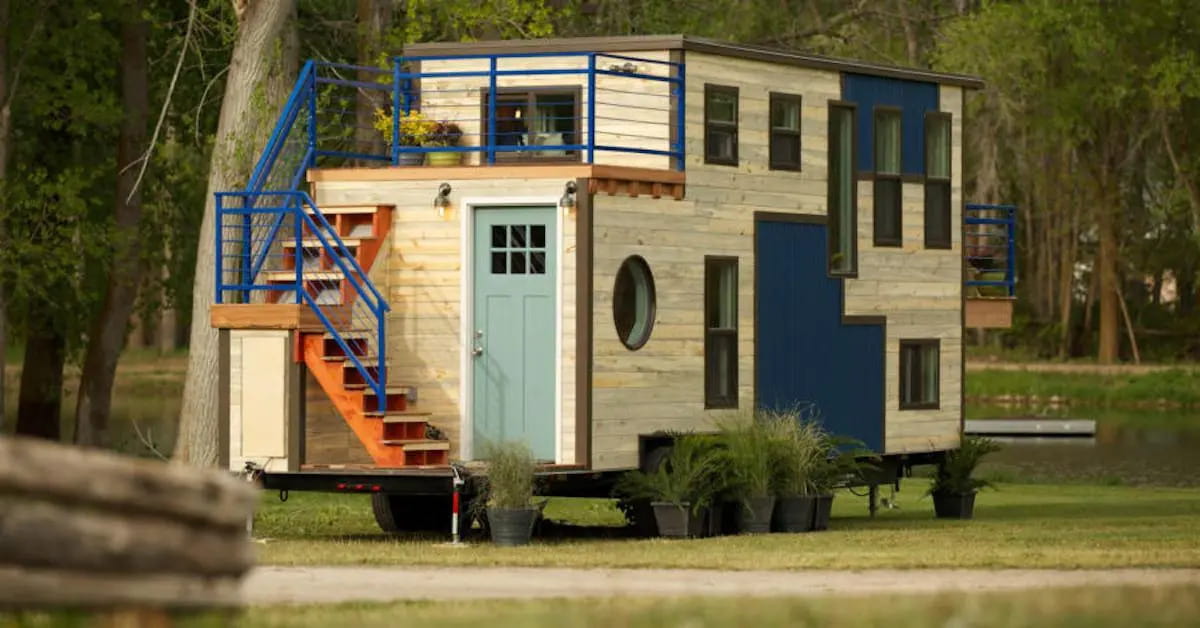
Airbnb guests around the world are going tiny, preferring cozy huts and off-the-grid houses to high-rise apartments, beach properties, and historic city centers. According to Airbnb, tiny houses experienced an increase of 125 percent year over year in bookings, and Airbnb’s forecast shows that the trends is not slowing down—quite the opposite.
What do guests love the most about tiny houses? Their intimacy, for example. Unlike lavish apartments with multiple beds, air conditioning, and more electronics than an Amazon truck on Black Friday, tiny houses feel like real homes designed for real people.
Instead of being a limitation, their small size is a selling point. Guests like how tiny houses make them feel more in harmony with nature, allowing them to get a taste of a simpler life before they return back to their usual routine in the city, where they are surrounded by concrete, computers, and commuters.
2. Green Vacations
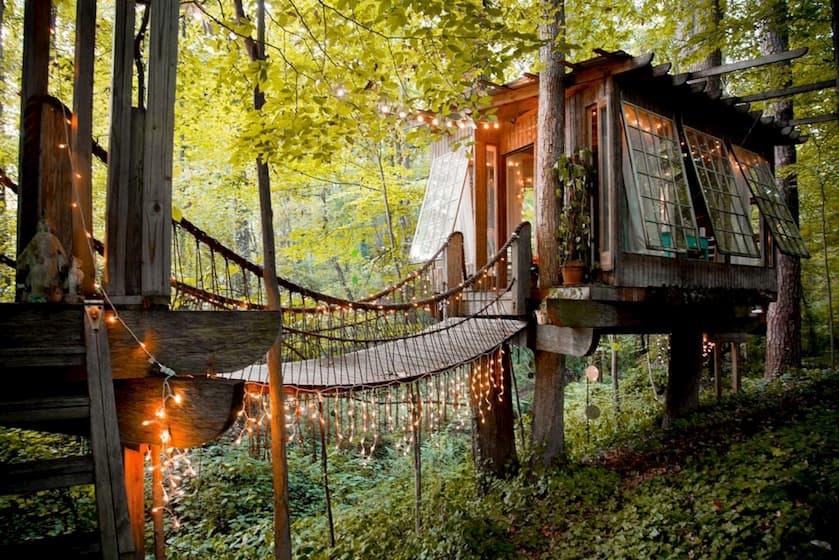
The latest Booking.com sustainability travel report revealed that 55 percent of global travelers are more determined than ever to make more sustainable travel choices, and Airbnb listings suggest that this trend is already taking place.
Eco-friendly travelers want to reduce their carbon footprint, lower their energy and water consumption, use greener transport, and keep up with environmental practices while they are on holidays. Hosts are listening and making their rentals greener by having different colored bins in the kitchen for recycling, using environmentally friendly lights, storing certain food items in sealable containers, providing canvas shopping bags, and replacing various personal hygiene and cleaning with greener alternatives.
Many Airbnb hosts have begun to advertise a toxin-free, foam-free, construction with local and sustainable materials, organic cotton sheets and natural mattresses, and close proximity to organic stores. Hopefully, this Airbnb trend won’t be with us just in 2024 because the entire planet benefits from it.
3. Airbnb Alternatives
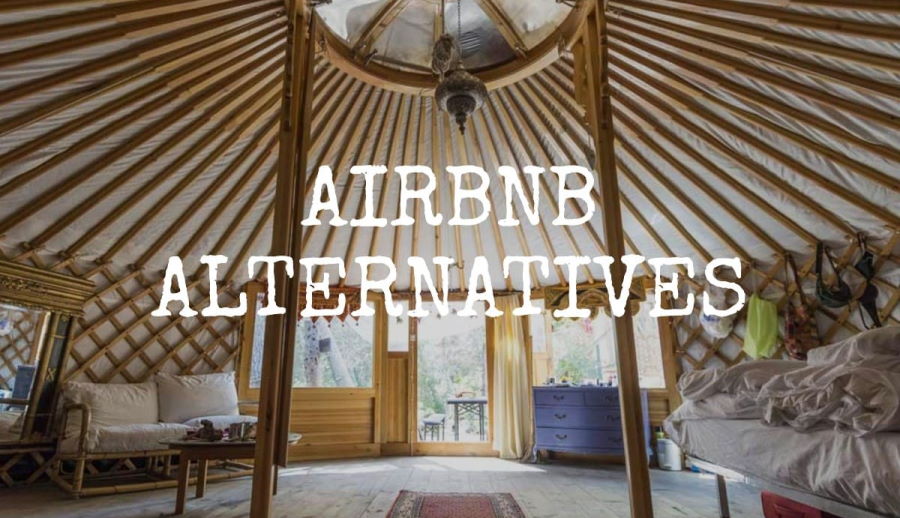
Airbnb is doing great in 2024. In fact, it now owns approximately 20 percent of the entire US consumer lodging market, which is more than Hilton. But Airbnb competitors haven’t been just silently watching the company grow. Instead, they’ve been improving their services, trying to beat Airbnb at its own game.
Here are the top 5 most popular Airbnb alternatives in 2024:
- Homestay: Some travelers are convinced that Airbnb has lost its original purpose: to offer genuine hosted experiences provided by independent, local hosts and not large corporations capitalizing on the sharing economy. Homestay is great for students who are learning a new language, studying abroad on Erasmus, or doing an internship, travelers who want more interaction with hosts, and everyone else who seeks true value and affordability. The only downside is that the number of listings on Homestay is somewhat limited compared with Airbnb.
- VRBO: Operating since 1996, VRBO is a trustworthy property rental service with secure payments, 24/7 support, and 100 percent satisfaction guarantee. VRBO makes the entire booking process easy, allowing you to narrow down its listings using detailed search filters. Property owners can either pay an annual fee or per booking, giving them more flexibility to maximize their earnings.
- OneFineStay: A professional photographer/interior designer can make any run-down shack seem inviting. If you don’t have time to compare hundreds or thousands of listings on Airbnb and are willing to pay extra for a luxury experience, OneFineStay may be the ideal Airbnb alternative for you. Featuring only the most attractive lodgings in the world, OneFineStay accepts only 1 in 10 hosts to guarantee maximum satisfaction.
- FlipKey: Owned by TripAdvisor, the company behind the popular travel platform of the same name, FlipKey is a major Airbnb alternative with around 300,000 listings across 11,000 cities. It’s biggest selling point to hosts is the fact that properties listed on FlipKey also appear as search results on TripAdvisor.
- Wimdu: You can think of Wimdu as a meta-search engine for short-term rentals. The site searches listings on hundreds of different providers, including Vrbo, Airbnb, and Booking.com, allowing users to easily compare prices and find the most attractive rental available. At the time of writing, Wimdu has over 350,000 vacation rentals located in some of the most attractive destinations in the world.
As you can see, Airbnb is certainly not the only sheriff in town, and it’s possible that it will have to one day hand over its badge and accept second place.
4. Keyless Entry
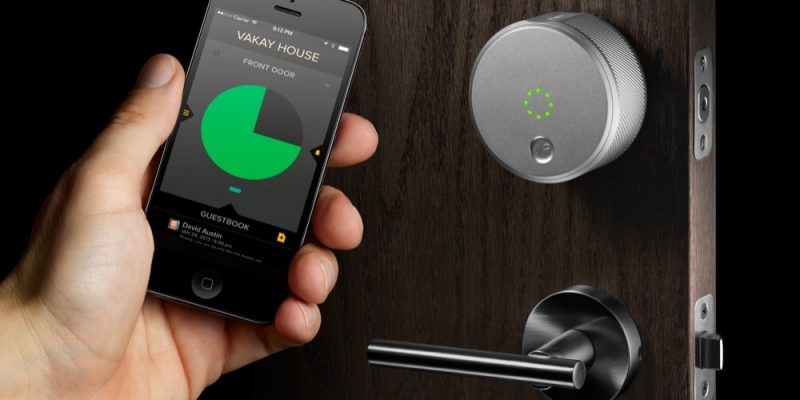
Both guests and hosts can agree on one thing: keyless entry is the future of short-term rentals. Today, there are many affordable smartlocks that can completely automate the check-in and check-out process and give hosts more time to focus on improving the quality of their accommodation instead of wasting hours and hours every week in traffic, delivering keys to guests.
Some smartlocks are actually not that smart at all because they don’t connect to the internet. Such locks typically feature a keypad as well as a traditional keyhole. While affordable, locks that don’t connect to the internet tend to be limited in functionality.
A connected smartlock can be managed remotely and programmed to accept different entry codes at different times of the day. They can send notifications when guests enter and leave, integrate with other smart security devices, and accept alternative authentication methods, such as voice or a fingerprint scan.
When selecting a smartlock, it’s always better to go with an established manufacturer over a small startup. The last thing you want is to end up with a buggy smartlock whose manufacturer has no intention of making it secure and usable.
5. Airbnb Plus

Aware that some travelers avoid Airbnb because they seek guaranteed quality, the company recently launched a new service, called Airbnb Plus, whose purpose is to list a carefully curated selection of the highest quality homes with hosts known for great reviews and attention to detail.
Whereas regular Airbnb currently has over 1.9 million listings in 191 countries, there are just a few thousand listings in Airbnb Plus at the moment, and most of them are in the world’s busiest cities, including Los Angeles, Shanghai, London, and Rome.
To make it to Airbnb Plus, hosts are required to complete a 100-point checklist, which covers everything from interior style to the kitchen equipment, comfort, TV and media entertainment, cleanliness, and more. To apply to the program, hosts are required to pay a one-time fee of $149 and have an average rating of 4.8 stars or higher.
Guests who decide to go with Airbnb Plus instead of the regular Airbnb can expect to pay an average of $250 per night. Every home is equipped with a lockbox, keypad, or a host who is on-call to greet you, so check-ins are always effortless.
Conclusion
More than a decade since its launch, Airbnb continues to reshape travelers’ expectations and play an integral role in the sharing economy. In this article, we described the top 5 Airbnb trends in 2024 and beyond to help guests and hosts alike understand the constantly evolving nature of travel and tourism.
FAQ
What are some of the prominent trends that emerged on Airbnb in 2024?
The trends on Airbnb in 2024 included a rise in eco-friendly accommodations, increased preference for unique stays like treehouses and yurts, growth in experiences offered by locals, the use of advanced technologies for seamless check-ins and enhanced guest experiences, and a spike in remote work-friendly listings.
How have eco-friendly accommodations influenced Airbnb’s market?
Eco-friendly accommodations have seen a surge in popularity as travelers become more environmentally conscious. Properties with green certifications and sustainable practices have been favored, influencing hosts to adopt eco-friendly measures, ultimately benefiting the market by attracting a niche, but growing segment of travelers.
Has there been a shift in the types of properties listed on Airbnb?
Yes, there’s been a noticeable shift with travelers seeking out more unique and unconventional accommodations, such as treehouses, yurts, and converted barns. This desire for distinctive experiences has encouraged more Airbnb hosts to offer properties that stand out from traditional offerings.
What role do local experiences play in Airbnb’s offerings?
Local experiences have become a cornerstone of Airbnb’s offerings, allowing guests to immerse themselves in the community. These activities range from cooking classes to local tours, enabling guests to connect with their destination on a deeper level while providing hosts an opportunity to share their culture and earn additional income.
Can you explain how advanced technologies are being utilized in Airbnb listings?
Advanced technologies, such as smart locks, automated messaging systems, and AI-powered suggestions, are increasingly being used to streamline the check-in process and enhance guest experiences. These technologies make it easier for guests to access properties and provide personalized recommendations during their stay.
What is the significance of remote work-friendly listings on Airbnb?
With the rise of remote work, Airbnb has seen a growing trend in listings that cater to this demographic. These properties often feature dedicated workspaces, high-speed internet, and amenities conducive to longer stays, allowing digital nomads and remote workers to comfortably integrate work and travel.
Are there any trends in how guests search for Airbnb properties?
Travelers on Airbnb are now more likely to use detailed filters and search for terms like wifi, pet-friendly, or pool to find listings that match their specific needs and preferences, indicating a trend towards more tailored and personalized travel experiences.
How has the expansion of Airbnb Experiences impacted the platform?
The expansion of Airbnb Experiences has diversified the platform beyond just accommodations, making it a one-stop-shop for travel planning. This expansion not only enhances the guest experience but also opens up new revenue streams for local hosts and Airbnb itself.
What is the importance of instant booking on Airbnb?
The instant booking feature has become increasingly important on Airbnb, providing convenience for travelers who prefer to secure accommodations quickly without waiting for host approval. It simplifies the booking process and meets the expectations of guests accustomed to on-demand services.
How has the preference for longer stays affected Airbnb listings?
With more guests seeking longer stays, Airbnb hosts have adapted by offering discounts for weekly or monthly bookings and ensuring their homes are equipped for extended living, which includes full kitchens, laundry facilities, and comfortable living spaces.
What impact has the desire for local and authentic travel had on Airbnb’s market?
The pursuit of local and authentic travel experiences has prompted hosts to tailor their listings and services to showcase the uniqueness of their location, which resonates with travelers looking for a more immersive and genuine connection to their destination.
Has the integration of artificial intelligence affected the way Airbnb operates?
Yes, artificial intelligence has significantly affected Airbnb’s operations, enhancing guest experiences with personalized recommendations and predictive analytics to optimize pricing and occupancy rates for hosts. AI has also automated certain customer service aspects, improving efficiency.
Are there any changes in the regulation of short-term rentals that might affect Airbnb?
Regulatory changes in various cities have adjusted the landscape for short-term rentals, with some places introducing limits on rental days, registration requirements, or outright bans. Airbnb and its hosts must stay informed and comply with these local regulations, which can impact Airbnb’s market presence.
How does Airbnb cater to the luxury travel market segment?
Airbnb caters to the luxury market through its Airbnb Luxe program, which offers high-end, vetted properties with premium amenities and services, such as personal chefs and concierge services, thus appealing to affluent travelers seeking exceptional stays.
What role does sustainability play in Airbnb’s vision for the future?
Sustainability is a critical aspect of Airbnb’s future vision, with the platform encouraging hosts to implement sustainable practices and guests to choose eco-friendly options. This commitment to sustainable tourism is expected to gain more traction as environmental concerns continue to influence traveler decisions.
How important are host-guest interactions in the current Airbnb experience?
Host-guest interactions are vital in shaping the Airbnb experience, as personalized attention and local insights offered by hosts can significantly enhance guest satisfaction. Airbnb fosters a community-centric platform where these connections can flourish, emphasizing the importance of human touch in the age of digital transactions.
Does Airbnb provide any support or resources for new hosts entering the market?
Airbnb offers comprehensive support and resources for new hosts through their Hosting Resource Center. This includes educational articles, community forums, and access to hosting tools designed to help new hosts navigate the platform and optimize their listings.
Has there been an increase in family-friendly Airbnb listings?
Yes, there’s been an uptick in family-friendly listings, with hosts equipping their homes with amenities like cribs, high chairs, and toys to cater to families. Such listings are highlighted by Airbnb’s family collection, which makes it easier for families to find accommodations that can meet their specific needs.
What significance does the ‘Superhost’ status hold on Airbnb?
The ‘Superhost’ status is a prestigious recognition Airbnb grants to hosts who consistently provide exceptional hospitality, including high response rates, outstanding reviews, and low cancellation rates. This badge of honor helps Superhosts stand out and can lead to increased bookings and revenue.
How has the user interface of Airbnb evolved to accommodate these trends?
The user interface of Airbnb has evolved to become more user-friendly and feature-rich, including streamlined search functions, flexible date options, and dynamic pricing tools. These changes accommodate the varying needs and preferences of travelers, making it easier for them to find the perfect listing.





